My friends have a pretty good idea about what kinds of things I’ll like, so after three of them independently suggested I check out ABC’s hit sitcom The Goldbergs, I decided to watch an episode and see what the fuss was about. It’s been just over a month, and I’ve now watched all five seasons of the show.
The show, which debuted in 2013, is a family-based sitcom set in the 1980s. The show combines the “looking back narration” style of The Wonder Years with a heaping serving of nostalgic references a’la That ’70s Show. The Goldbergs focuses on the nerdy and pop-culture obsessed Adam F. Goldberg and his 1980s adventures, which frequently involve his older siblings Barry and Erica, parents Beverly and Murray, and Beverly’s father, Pops.

The show’s stories are loosely based on the real life experiences of its creator, the real Adam F. Goldberg. Each character on the show is based on members of his real life family (his brother Eric was changed to Erica), and each episode wraps with a video clip recorded on Adam’s home video camera from the 1980s. It’s a fun twist that shows the real life roots of a fictional show.
Having binge-watched 117 episodes of the show over the past six weeks, it became apparent that every episode of the show follows the same basic plot structure. Every half-hour episode features (at least) one iconic item from the 80s, combined with conflict featuring one or more members of the Goldberg family.
Whatever 80s fad you can think of, be it break dancing, boom boxes, or Aqua-Net Hair Spray, it’s probably been featured in an episode of The Goldbergs. Lots of television shows and movies from that same era are directly referenced in the show as well. A few of the episodes were re inspired by classic 80s films, like the one where the Goldberg children went on a Goonies inspired adventure in search of treasure. In another, Adam pretends to create a girlfriend for his brother Barry using his computer, just like Weird Science. There’s even an entire episode where Barry, like Ferris Bueller before him, decides he deserves his own day off.
Despite the fact that each show is introduced as taking place in “1980-something,” in regards to its historical accuracy, the show is awful. For example, in one episode, Adam both goes to the movie theater to watch Police Academy 5 (released in 1988) and gets excited about the release of E.T. for the Atari 2600 (released in 1982). Occasionally toys or movies are referenced before they would have been released, but more commonly, things appear way later than they should. I have read that it would have been too difficult for the show’s writers to keep track of a firm timeline of events and pop-culture references, so they chose to go with a “throw everything in every episode” approach and blur the timeline. And while generally speaking that approach works, seeing kids with brand new Tron shorts and valley girls in episodes that take place in 1989 will seem out of place for anyone who grew up during that time.
To be fair, to focus on the show’s anachronisms is to miss the point. When Barry and his pals put together their own dance crew, all I could think about were the breakdancing videos my friends and I made in my living room using my parents’ video camera. And, while watching the episode titled “The Kara-te Kid,” I was less worried about the accuracy of the timeline, and more focused on my own memories of the karate demonstration I participated in right before The Karate Kid premiered in our local mall’s theater. As we used to say back in the 80s, “been there, done that, got the (wrinkled) t-shirt to prove it.”
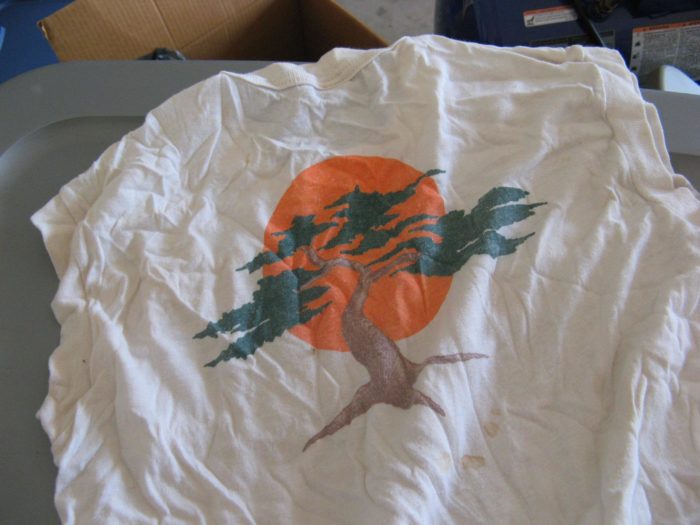
And that’s where the strength of the show lies; not in getting every detail of the 1980s right, but in putting enough of those facts and memories together to spark nostalgic feelings from its viewers. Whether it’s Adam ruining an important floppy disk, Barry having second thoughts about entering the school’s talent show, or Erica’s desire to start a band with her best friend, almost every episode has a story I can relate to.
(And, as much as I hate to admit it, there are quite a few episodes where I find myself siding with the Goldberg parents.)
My friends were right; I enjoyed The Goldbergs, not just because of the nostalgic references, but because, back in the 1980s, I was my neighborhood’s Adam F. Goldberg. Not only did I love Star Wars and movies and television shows and video games and arcade games and computers and every single other thing that Adam F. Goldberg likes on the show, but like him, I also had a video camera, and recorded plenty of cringe-worthy videos of my own.
So, thanks to all my friends who recommended I watch The Goldbergs, and thanks to all my friends and neighbors growing up who appeared in my music videos, parodies, puppet shows, television programs, wrestling matches, ninja movies, break dancing clips, and all the other dumb things we recorded. Someday when I publish them, I promise to change your names.
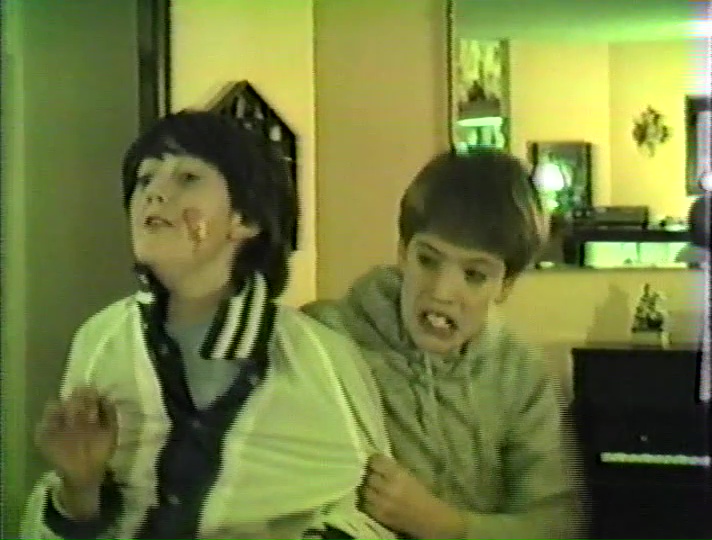
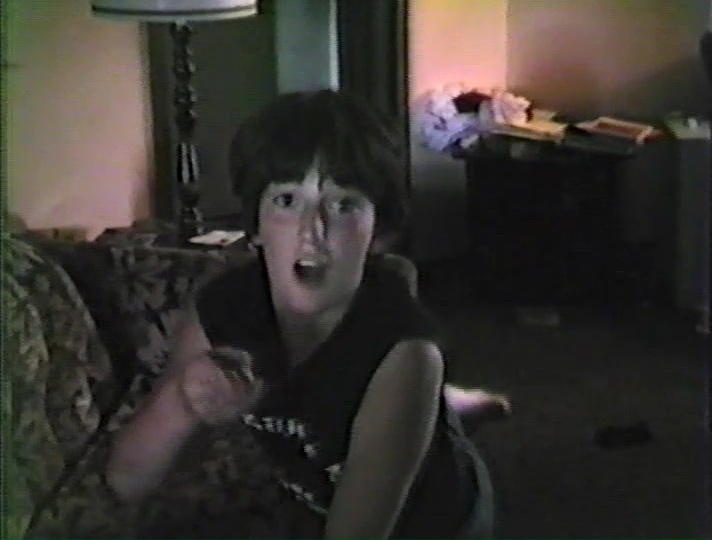
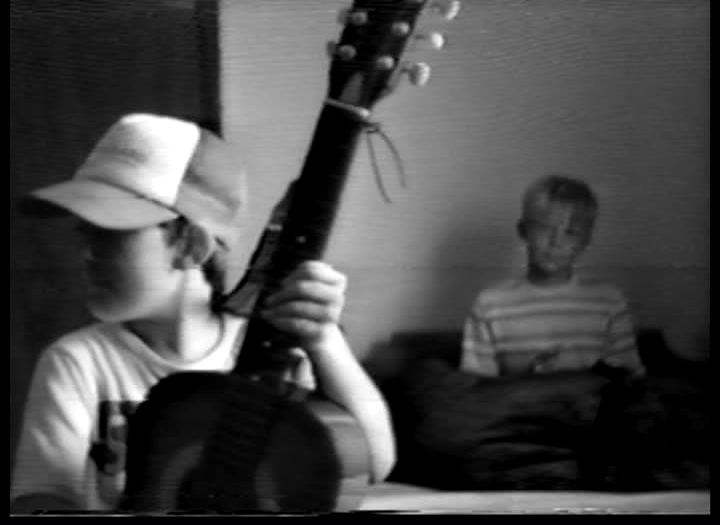
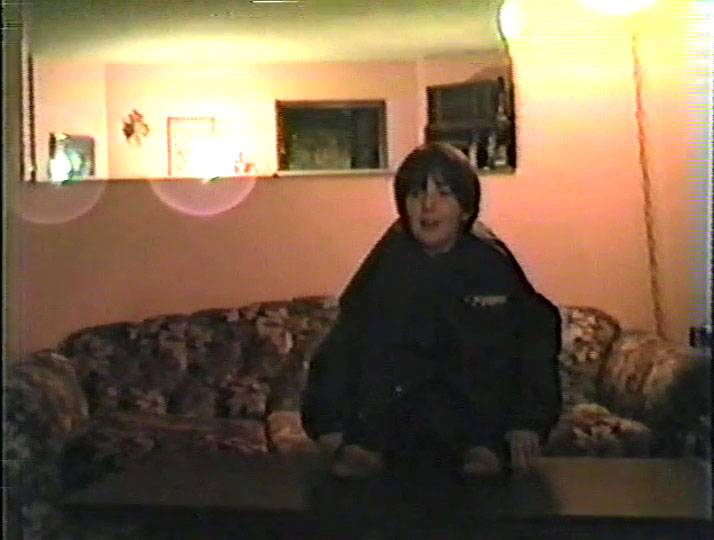
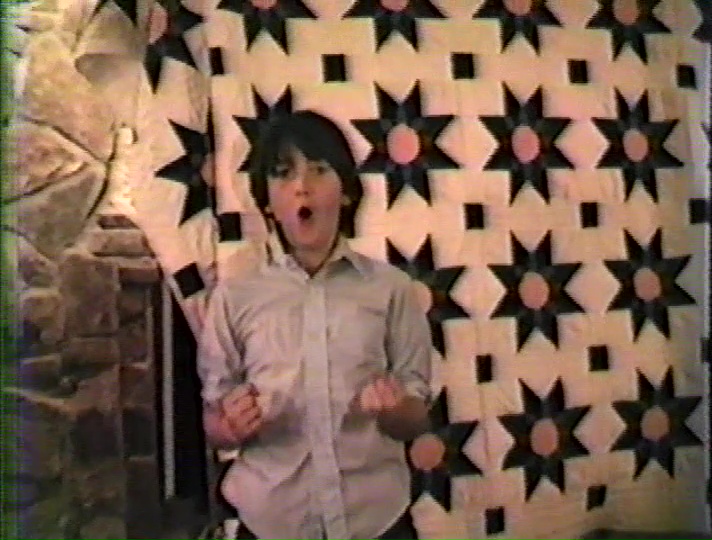

Glad you gave it a chance, it’s a great show. At first, I was bugged by the timeline problems, but just embraced the “1980-something” gimmick and enjoyed it.